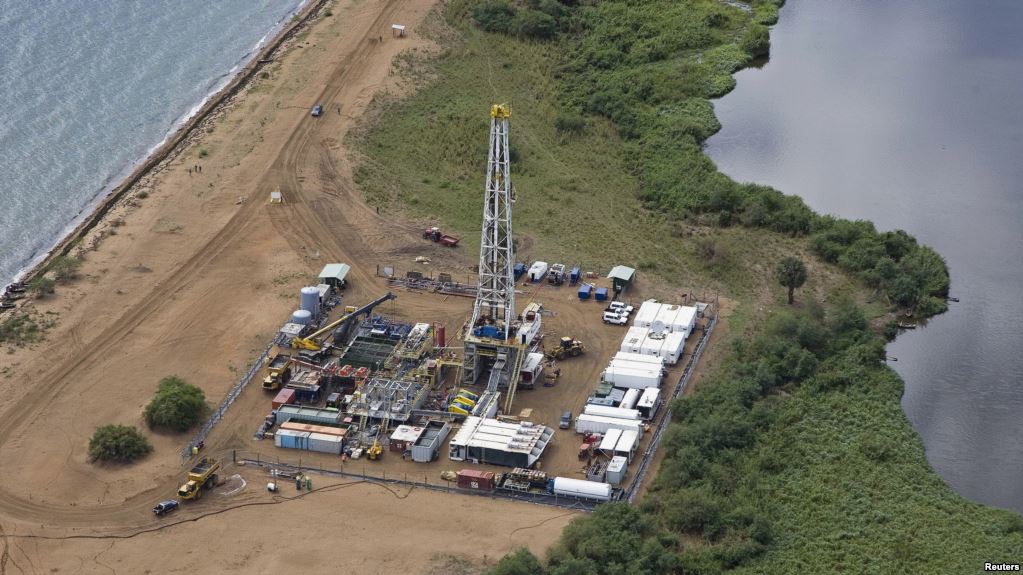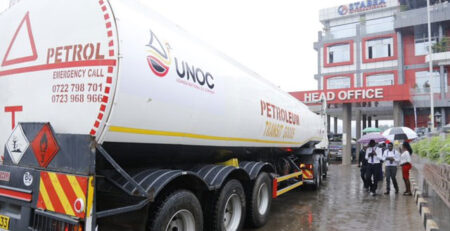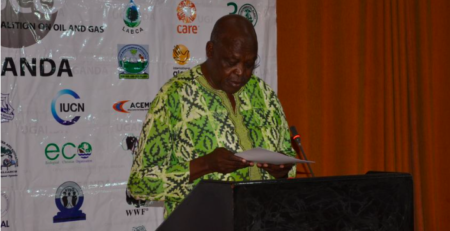Impact of COVID-19 on oil and gas sector development in Uganda
The COVID-19 pandemic struck at a time when the Government of Uganda had made notable strides in the development of the oil and gas sector. These include establishment and the operationalization of key institutions like the Petroleum Authority of Uganda (PAU) and the Uganda National Oil Company (UNOC) to regulate and manage the industry. Additionally, Government also made leeway in the construction of road infrastructure, Hoima International Airport, land acquisition, resettlement and or compensation of affected persons.
A key milestone was Uganda’s decision to join the Extractive Industries Transparency Initiative (EITI) in January 2019. EITI is a global standard for the good governance of oil, gas and mineral resources. Nations that sign up to be a part of it commit to ensuring transparency and accountability in the natural resource sector.
Specific, tangible achievements in relation to the EITI include the establishment of a Multi-Stakeholder Group (MSG) to oversee the EITI implementation with a Senior Government official appointed to lead the group. The MSG terms of reference was approved and a number of consultative meetings were organised to frame a national work plan that would guide the implementation of the EITI.
These gains made so far are at a risk of being setback due to the unpredictability caused by the global pandemic. The exploration, production and development of new oil projects such as the East African Crude Oil Pipeline may also be delayed contingent on the effects of the pandemic. It is also probable that more time and resources will be reassigned to the health sector at the expense of Oil and Gas sector development.
In the gender context, reports indicate that women in Uganda miss out on employment and local content opportunities that emerge within the industry. Gender inequality all over the world is precarious and no doubt this world wide pandemic will exacerbate it in ways such as the loss of employment for women who hold the majority of Informal and lower paying jobs. The shocks created are likely to outlast the actual epidemic and thus reducing the aggravated inequalities need to be addressed.
Fortunately, the pandemic and the resultant restrictions on business have not totally held the sector hostage.
Oil will be there to provide the fuel to our work places, ignite the industries and generally deal with the post pandemic recovery as the extractive sector remains an engine for growth.
On April 23, Tullow and Total Uganda announced that they had reached an agreement, in which Tullow agreed to transfer its entire interests in Uganda’s Lake Albert Development project including the stake in the proposed East African Crude Oil Pipeline system to Total E&P for cash consideration of US$575 million including the potential contingent payments after production commences. This transaction provides headway towards the Financial Investment Decision (FID) after a long-standing tax dispute that had stalled Uganda’s Oil development.
Furthermore, Government should consider how the development of the extractive industry can contribute towards achieving gender equality. This can be done through collecting gender disaggregated data in Uganda’s extractive industries such as employment, local procurement and training and make them available to the relevant stakeholders so as to make informed decisions when developing gender responsive policies, programmes and budgets.
It has been argued (Ellen R. Wald, 2020) that the oil and gas are still in the ground, whether companies extract it tomorrow, next month or next year, the low oil demand caused by the coronavirus pandemic cannot kill the industry, it can only delay it.
Oil will be there to provide the fuel to our work places, ignite the industries and generally deal with the post pandemic recovery as the extractive sector remains an engine for growth.




